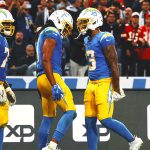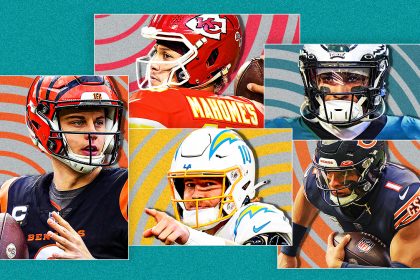Tim McCarver, a 21-year MLB veteran and longtime FOX Sports broadcaster, died Thursday. He was 81 years old.
McCarver began his major-league career in 1959 with the St. Louis Cardinals at the age of 17. His best years came in 1966 and 1967, when he made consecutive National League All-Star teams as a catcher. He was the NL MVP runner-up in ’67, finishing behind teammate Orlando Cepeda.
McCarver’s death was announced by the National Baseball Hall of Fame, which said he died Thursday morning in Memphis, Tennessee, where he was with his family.
McCarver played in three World Series and won two rings (1964, 1967). He hit .311 with two home runs and 11 RBIs in those three series.
ADVERTISEMENT
He went on to also play for the Phillies, Expos and Red Sox in a career that spanned 1,909 games. McCarver had a career batting line of .271/.337/.388, hit 97 home runs and finished his career with 645 RBIs. He is one of 31 players ever to play in four different decades.
McCarver worked closely with two future Hall of Fame pitchers: The tempestuous Bob Gibson, whom McCarver caught for St. Louis in the 1960s, and the introverted Steve Carlton, McCarver’s fellow Cardinal in the ’60s and a Philadelphia Phillies teammate in the 1970s.
After his retirement as a player in 1980, McCarver found a second career as a Hall of Fame broadcaster. He worked for all four major networks, but spent the most time at FOX, where he was paired with Joe Buck on the network’s broadcasts from 1996 to 2013. McCarver called 24 World Series throughout his career, 18 of them for FOX.
He was a six-time Sports Emmy Award winner and won the 2012 Ford C. Frick award for his work as a broadcaster.
“I think there is a natural bridge from being a catcher to talking about the view of the game and the view of the other players,” McCarver told the Hall in 2012, the year he and Buck were given the Frick Award. “It is translating that for the viewers. One of the hard things about television is staying contemporary and keeping it simple for the viewers.”
Six feet tall and solidly built, McCarver was a policeman’s son from Memphis, who grew up playing baseball and football and imitating popular broadcasters, notably the Cards’ Harry Caray. He was signed while still in high school by the Cardinals for $75,000, a generous offer for that time; just 17 when he debuted for them in 1959 and in his early 20s when he became the starting catcher.
Few catchers were strong hitters during the ’60s, but McCarver batted .270 or higher for five consecutive seasons and was fast enough to become the first in his position to lead the league in triples.
McCarver met Carlton when the left-hander was a rookie in 1965 “with an independent streak wider than the Grand Canyon,” McCarver later wrote. The two initially clashed, even arguing on the mound during games, but became close and were reunited in the 1970s after both were traded to Philadelphia. McCarver became Carlton’s designated catcher.
“Behind every successful pitcher, there has to be a very smart catcher, and Tim McCarver is that man,” Carlton said during his Hall of Fame induction speech in 1994. “Timmy forced me (to) pitch inside. Early in my career I was reluctant to pitch inside. Timmy had a way to remedy this. He used to set up behind the hitter. There was just the umpire there; I couldn’t see him (McCarver), so I was forced to pitch inside.”
Younger baseball fans first knew him from his work in the broadcast booth, whether local games for the Mets and Yankees, as Jack Buck’s partner on CBS or with Joe Buck for FOX.
Knowledge was his trademark. In his spare time, he visited art museums, read books and could recite poetry from memory. At work, he was like a one-man scouting team, versed in the most granular details, and spent hours preparing before each game. At times, he seemed to have psychic powers. In Game 7 of the 2001 World Series, the score was tied at 2 between the Yankees and the Arizona Diamondbacks and the Yankees drew in their infield with the bases loaded and one out in the bottom of the ninth. Relief ace Mariano Rivera was facing Arizona’s Luis Rodriquez.
“Rivera throws inside to left-handers,” McCarver observed. “Left-handers get a lot of broken-bat hits into shallow outfield, the shallow part of the outfield. That’s the danger of bringing the infield in with a guy like Rivera on the mound.”
Moments later, Gonzalez’s bloop to short center field drove in the winning run.
“When you the consider the pressure of the moment,” ESPN’s Keith Olbermann told The New York Times in 2002, “the time he had to say it and the accuracy, his call was the sports-announcing equivalent of Bill Mazeroski’s home run in the seventh inning to defeat the Yankees in 1960.”
McCarver and his wife, Anne McDaniel, had homes in Sarasota, Florida and Napa, California. In recent years, McCarver announced part-time for FOX Sports Midwest and worked the occasional Cards game before sitting out the 2020 season because of concerns about COVID-19. Besides the Frick award, he was inducted into the Cardinals Hall of Fame, in 2017.
Reporting from the Associated Press was included in this report.

Get more from Major League Baseball Follow your favorites to get information about games, news and more












